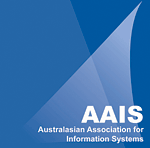The Australasian Association for Information Systems (AAIS) is the Australasian chapter of the Association for Information Systems (AIS), a global network of IS communities. Regional IS activity is supported through multinational, national or state-based chapters. There are currently 51 AIS Chapters worldwide. Each chapter is responsible for supporting and developing the discipline of information systems within its jurisdiction.
AAIS is considered to be one of the best AIS chapters. Since 2014, the AIS has conducted an annual award scheme to recognise outstanding chapters. The AAIS has won the Outstanding Chapter Award every year since this award was first offered, a distinction it shares with only two other Chapters. AAIS is the only multinational chapter to have achieved this level of recognition.
Our member countries vary in socio-economic status and have considerable cultural and linguistic variation, see UN Human Development (HDI). AAIS supports and develops the Australasian Information Systems academic community in Australia, New Zealand and Oceania, see AAIS Jurisdiction. Information Systems scholars and professionals from these Member Countries collectively form the Australasian IS Community. Within our jurisdiction, other scholarly and professional associations support this community, and in some cases, these associations engage with the AAIS. Together with the AAIS, these entities collectively form what we call the Australasian IS Ecosystem. A brief history of the AAIS is provided. Please click on the AAIS Executive Team link to find out more about us.
Click the links to discover the different types of activities we engage in and the services that the AAIS provides.
